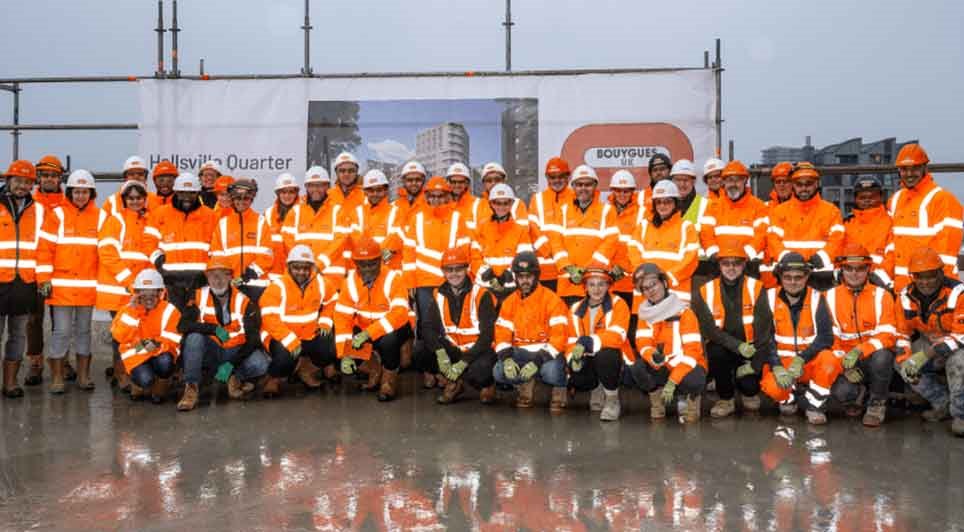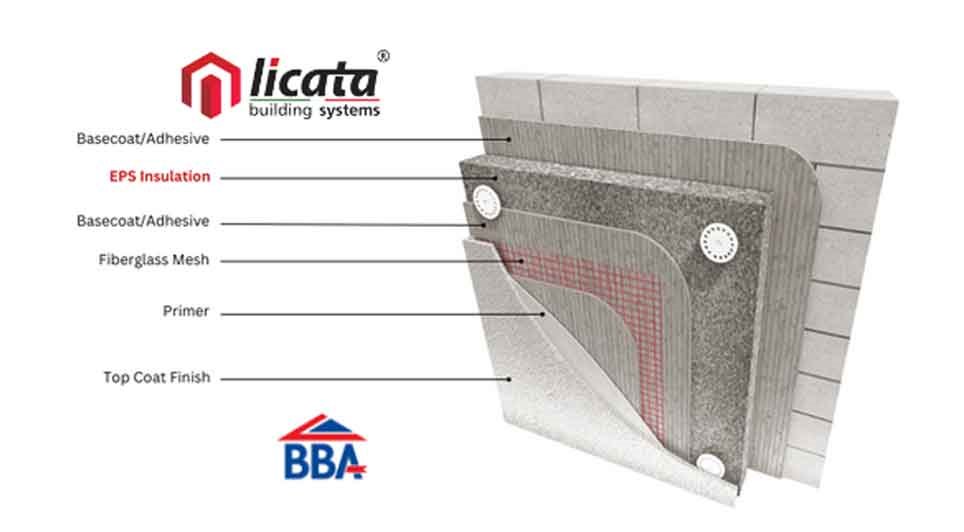Construction News
17/07/2024
Enhancing Durability And Performance: The Importance Of Rubber Moulding In The Yellow Goods Sector

When it comes to the durability and performance of yellow goods, such as construction and agricultural machinery, one crucial element that cannot be overlooked is rubber moulded parts.
Yellow goods are subjected to harsh and demanding conditions, making it essential to have components that can withstand the test of time. Rubber moulding plays a vital role in enhancing the durability and performance of these machines, ensuring they can endure the toughest environments and deliver optimal results.
Understanding the importance of durability in yellow goods
Durability is a critical factor in yellow goods as they are constantly exposed to challenging conditions, including heavy loads, extreme temperatures, and rough terrains. Without durable components, these machines would be prone to premature wear and tear, leading to frequent breakdowns, increased maintenance costs, and reduced productivity. Bespoke rubber moulded parts offer a solution to this problem by providing a protective barrier that can absorb shocks, resist abrasion, and maintain the structural integrity of yellow goods.
With the right moulding parts, yellow goods can withstand the rigors of their intended applications. For example, in construction machinery, rubber moulded components such as joystick gaiters, engine mounts, gaskets, and seals help minimise vibrations, stops ingress of dirt and moisture, prevent leaks, and ensure the proper functioning of the equipment. Similarly, in agricultural machinery, rubber moulded parts like tyres and tracks provide excellent traction, reduce soil compaction, and enhance overall performance. The durability offered by rubber moulding not only extends the lifespan of yellow goods but also improves their safety and efficiency.
The role of rubber moulding in enhancing performance
In addition to durability, rubber moulding also plays a significant role in enhancing the performance of yellow goods. The flexibility and resilience of rubber enable it to absorb vibrations, reduce noise levels, and improve operator comfort. This, in turn, leads to better ergonomics, increased productivity, and reduced fatigue. By minimising the impact of vibrations on the operator and the machine itself, rubber moulding contributes to a smoother and more efficient operation.
Moreover, rubber moulded components can provide excellent sealing properties, ensuring that yellow goods are protected against dust, water, and other contaminants. This is particularly crucial for machinery operating in dusty or wet environments, where the ingress of foreign substances can cause significant damage. The sealing capabilities of rubber moulding help maintain the integrity of the machine’s internal components, rubber gaiters and seals preventing premature wear and corrosion.
The ability of rubber to absorb shocks and vibrations also reduces the stress on other mechanical parts, such as bearings and joints. By acting as a cushioning material, rubber moulding helps prevent excessive wear and tear on these components, extending their lifespan and reducing the need for frequent replacements. This not only saves costs but also minimises downtime and improves the overall efficiency of yellow goods.
Advantages of rubber moulding in the yellow goods industry
Rubber moulding offers several advantages that make it an ideal choice for enhancing durability and performance. Firstly, rubber is a versatile material that can be customised to meet specific requirements. It can be formulated to withstand extreme temperatures, resist chemicals, or offer high tensile strength, depending on the intended application. This versatility allows for the creation of rubber moulded components that are tailored to the unique needs of yellow goods.
Secondly, rubber moulding provides excellent resistance to wear and tear, making it highly suitable for yellow goods operating in abrasive environments. The durability of rubber ensures that the moulded components can withstand constant exposure to impacts, friction, and other forms of mechanical stress. This resistance to wear translates into increased reliability and reduced maintenance costs for yellow goods.
Another advantage of rubber moulding in the yellow goods sector is its ability to dampen vibrations and noise. Rubber’s inherent properties enable it to absorb shocks and vibrations, thereby reducing the transmission of noise and vibrations to the surroundings. This is particularly important for yellow goods operating in urban areas or noise-sensitive environments where minimising noise pollution is essential.
Furthermore, rubber offers excellent resistance to environmental factors such as UV radiation, ozone, and moisture. This resistance ensures that the rubber components remain intact and functional even when exposed to harsh weather conditions. The ability of rubber to withstand environmental challenges contributes to the long-term durability and reliability of yellow goods.
The process of Rubber Moulding in the Yellow Goods sector
The process of yellow goods rubber moulding involves several stages that ensure the creation of high-quality, durable components. It begins with the selection of the appropriate rubber material based on the specific requirements of the yellow goods. Factors such as temperature range, chemical resistance, and mechanical properties are taken into consideration to determine the most suitable rubber compound.
Once the rubber material is selected, it is mixed with various additives and curing agents to achieve the desired properties. This compound is then injected into tools that are designed to shape the rubber into the desired component. The tools are carefully designed to ensure precision and accuracy in the final product.
After the rubber is injected into the tool, it undergoes a curing process, which involves subjecting it to heat and pressure. This process allows the rubber to solidify and acquire its final shape and properties. Once the curing is complete, the rubber components are removed from the tool, inspected for quality, and subjected to various tests to ensure their performance and durability.
Choosing the right rubber material for yellow goods
When it comes to yellow goods rubber moulding, selecting the right rubber material is crucial for achieving optimal results. There are various types of rubber compounds available, each with its unique properties and advantages. Factors such as temperature range, chemical exposure, and mechanical stress must be considered when choosing the rubber material for yellow goods.
For example, in applications where extreme weather an UV resistance is required, EPDM rubber is an excellent choice. EPDM can withstand extreme temperature fluctuations without losing its elasticity or mechanical properties making it a great choice for joystick gaiters. On the other hand, natural rubber offers excellent abrasion resistance and flexibility, making it suitable for applications where frequent impacts and vibrations are expected.
In addition to considering the properties of the rubber material, it is also important to evaluate the reliability and reputation of the rubber moulding provider. The provider should have experience in the yellow goods industry and a track record of delivering high-quality products. They should also be able to offer customisation options to meet specific requirements and provide support throughout the entire process, from design to production.
Common applications of rubber Moulding in the Yellow Goods sector
Yellow goods rubber moulding finds application in a wide range of industries and sectors. One of the most common applications is in the construction industry, where rubber moulded components are used in equipment such as excavators, bulldozers, and loaders. These components include joystick gaiters, engine mounts, gaskets, seals, and tracks, which play a critical role in ensuring the durability and performance of the machinery.
In the agricultural sector, yellow goods rubber moulding is widely used in machinery such as tractors, harvesters, and sprayers. Rubber components such as tires, belts, and hoses provide excellent traction, reduce soil compaction, and enable efficient operation in various field conditions. The durability and performance of these rubber moulded parts contribute to the productivity and effectiveness of agricultural operations.
Other industries that benefit from yellow goods rubber moulding include mining, forestry, and materials handling. In mining, rubber moulded components are used in equipment such as dump trucks, loaders, and conveyor systems. These components withstand the harsh conditions of mining environments, including abrasive materials, extreme temperatures, and heavy loads.
Forestry machinery, such as log loaders and skidders, also rely on rubber moulded parts to enhance their durability and performance. Rubber components in these machines provide traction, shock absorption, and protection against impacts from fallen trees and branches. Similarly, materials handling equipment, including forklifts and cranes, utilise rubber moulding to improve their efficiency and safety.
Factors to consider when selecting a yellow goods rubber moulding provider
Choosing the right yellow goods rubber moulding provider is crucial for ensuring the quality, durability, and performance of the moulded components. Several factors should be considered when making this decision. Firstly, the provider should have experience and expertise in the yellow goods industry, understanding the unique requirements and challenges associated with these machines.
Secondly, the provider should offer a wide range of rubber materials and customisation options to meet specific needs. They should be able to recommend the most suitable rubber compound based on the intended application and provide guidance throughout the design and manufacturing process.
The reputation and reliability of the provider are also essential factors to consider. Checking for certifications and evaluating the provider’s track record can help gauge their commitment to quality and customer satisfaction.
Additionally, the provider should have a robust quality control process in place to ensure that the moulded components meet the required specifications. Regular inspections, testing, and adherence to international quality standards are indicators of a reliable and trusted provider.
Maintenance and care tips for yellow goods with rubber moulding
To ensure the longevity and optimal performance of yellow goods with rubber moulding, proper maintenance and care are essential. Regular inspections should be conducted to identify any signs of wear, damage, or deterioration in the rubber components. This includes checking for cracks, tears, or deformation in the rubber, as well as inspecting the bonding between the rubber and other materials.
Cleaning the rubber components regularly is also important to remove any dirt, debris, or chemicals that may have accumulated. Using mild detergent and water, along with a soft brush or cloth, is typically sufficient for cleaning rubber moulded parts. Harsh chemicals or abrasive materials should be avoided as they can damage the rubber or affect its properties.
It is also essential to follow the manufacturer’s guidelines and recommendations for maintenance and care. This includes adhering to recommended operating conditions, avoiding overloading or excessive stress on the yellow goods, and replacing worn or damaged rubber components promptly.
Conclusion: Investing in Rubber Moulding in the Yellow Goods sector for long-lasting performance
In conclusion, yellow goods rubber moulding plays a crucial role in enhancing the durability and performance of these machines. By providing a protective layer, rubber moulded components can withstand the demanding conditions to which yellow goods are exposed. The flexibility and resilience of rubber also contribute to improved ergonomics, reduced vibrations, and enhanced operator comfort.
The advantages of yellow goods rubber moulding, such as resistance to wear, sealing capabilities, and environmental resistance, make it an ideal choice for various industries and sectors. Whether in construction, agriculture, mining, or materials handling, rubber moulded parts ensure the longevity, reliability, and productivity of yellow goods.
When selecting a yellow goods rubber moulding provider, factors such as experience, customisation options, and reputation should be considered. Proper maintenance and care, including regular inspections and cleaning, are essential to prolong the lifespan and performance of yellow goods with rubber moulding.
Investing in yellow goods rubber moulding is an investment in long-lasting performance, increased productivity, and reduced maintenance costs. By choosing the right rubber material and partnering with a reliable provider, yellow goods can withstand the toughest conditions and deliver optimal results.
At SRM We work with some of the largest Yellow Goods manufactures in the industry and have gained an in-depth knowledge of what is required to withstand the harsh environmental factors that Yellow Goods machinery is subjected to.
For more information or to discuss your requirements further contact one of our experts today.
Yellow goods are subjected to harsh and demanding conditions, making it essential to have components that can withstand the test of time. Rubber moulding plays a vital role in enhancing the durability and performance of these machines, ensuring they can endure the toughest environments and deliver optimal results.
Understanding the importance of durability in yellow goods
Durability is a critical factor in yellow goods as they are constantly exposed to challenging conditions, including heavy loads, extreme temperatures, and rough terrains. Without durable components, these machines would be prone to premature wear and tear, leading to frequent breakdowns, increased maintenance costs, and reduced productivity. Bespoke rubber moulded parts offer a solution to this problem by providing a protective barrier that can absorb shocks, resist abrasion, and maintain the structural integrity of yellow goods.
With the right moulding parts, yellow goods can withstand the rigors of their intended applications. For example, in construction machinery, rubber moulded components such as joystick gaiters, engine mounts, gaskets, and seals help minimise vibrations, stops ingress of dirt and moisture, prevent leaks, and ensure the proper functioning of the equipment. Similarly, in agricultural machinery, rubber moulded parts like tyres and tracks provide excellent traction, reduce soil compaction, and enhance overall performance. The durability offered by rubber moulding not only extends the lifespan of yellow goods but also improves their safety and efficiency.
The role of rubber moulding in enhancing performance
In addition to durability, rubber moulding also plays a significant role in enhancing the performance of yellow goods. The flexibility and resilience of rubber enable it to absorb vibrations, reduce noise levels, and improve operator comfort. This, in turn, leads to better ergonomics, increased productivity, and reduced fatigue. By minimising the impact of vibrations on the operator and the machine itself, rubber moulding contributes to a smoother and more efficient operation.
Moreover, rubber moulded components can provide excellent sealing properties, ensuring that yellow goods are protected against dust, water, and other contaminants. This is particularly crucial for machinery operating in dusty or wet environments, where the ingress of foreign substances can cause significant damage. The sealing capabilities of rubber moulding help maintain the integrity of the machine’s internal components, rubber gaiters and seals preventing premature wear and corrosion.
The ability of rubber to absorb shocks and vibrations also reduces the stress on other mechanical parts, such as bearings and joints. By acting as a cushioning material, rubber moulding helps prevent excessive wear and tear on these components, extending their lifespan and reducing the need for frequent replacements. This not only saves costs but also minimises downtime and improves the overall efficiency of yellow goods.
Advantages of rubber moulding in the yellow goods industry
Rubber moulding offers several advantages that make it an ideal choice for enhancing durability and performance. Firstly, rubber is a versatile material that can be customised to meet specific requirements. It can be formulated to withstand extreme temperatures, resist chemicals, or offer high tensile strength, depending on the intended application. This versatility allows for the creation of rubber moulded components that are tailored to the unique needs of yellow goods.
Secondly, rubber moulding provides excellent resistance to wear and tear, making it highly suitable for yellow goods operating in abrasive environments. The durability of rubber ensures that the moulded components can withstand constant exposure to impacts, friction, and other forms of mechanical stress. This resistance to wear translates into increased reliability and reduced maintenance costs for yellow goods.
Another advantage of rubber moulding in the yellow goods sector is its ability to dampen vibrations and noise. Rubber’s inherent properties enable it to absorb shocks and vibrations, thereby reducing the transmission of noise and vibrations to the surroundings. This is particularly important for yellow goods operating in urban areas or noise-sensitive environments where minimising noise pollution is essential.
Furthermore, rubber offers excellent resistance to environmental factors such as UV radiation, ozone, and moisture. This resistance ensures that the rubber components remain intact and functional even when exposed to harsh weather conditions. The ability of rubber to withstand environmental challenges contributes to the long-term durability and reliability of yellow goods.
The process of Rubber Moulding in the Yellow Goods sector
The process of yellow goods rubber moulding involves several stages that ensure the creation of high-quality, durable components. It begins with the selection of the appropriate rubber material based on the specific requirements of the yellow goods. Factors such as temperature range, chemical resistance, and mechanical properties are taken into consideration to determine the most suitable rubber compound.
Once the rubber material is selected, it is mixed with various additives and curing agents to achieve the desired properties. This compound is then injected into tools that are designed to shape the rubber into the desired component. The tools are carefully designed to ensure precision and accuracy in the final product.
After the rubber is injected into the tool, it undergoes a curing process, which involves subjecting it to heat and pressure. This process allows the rubber to solidify and acquire its final shape and properties. Once the curing is complete, the rubber components are removed from the tool, inspected for quality, and subjected to various tests to ensure their performance and durability.
Choosing the right rubber material for yellow goods
When it comes to yellow goods rubber moulding, selecting the right rubber material is crucial for achieving optimal results. There are various types of rubber compounds available, each with its unique properties and advantages. Factors such as temperature range, chemical exposure, and mechanical stress must be considered when choosing the rubber material for yellow goods.
For example, in applications where extreme weather an UV resistance is required, EPDM rubber is an excellent choice. EPDM can withstand extreme temperature fluctuations without losing its elasticity or mechanical properties making it a great choice for joystick gaiters. On the other hand, natural rubber offers excellent abrasion resistance and flexibility, making it suitable for applications where frequent impacts and vibrations are expected.
In addition to considering the properties of the rubber material, it is also important to evaluate the reliability and reputation of the rubber moulding provider. The provider should have experience in the yellow goods industry and a track record of delivering high-quality products. They should also be able to offer customisation options to meet specific requirements and provide support throughout the entire process, from design to production.
Common applications of rubber Moulding in the Yellow Goods sector
Yellow goods rubber moulding finds application in a wide range of industries and sectors. One of the most common applications is in the construction industry, where rubber moulded components are used in equipment such as excavators, bulldozers, and loaders. These components include joystick gaiters, engine mounts, gaskets, seals, and tracks, which play a critical role in ensuring the durability and performance of the machinery.
In the agricultural sector, yellow goods rubber moulding is widely used in machinery such as tractors, harvesters, and sprayers. Rubber components such as tires, belts, and hoses provide excellent traction, reduce soil compaction, and enable efficient operation in various field conditions. The durability and performance of these rubber moulded parts contribute to the productivity and effectiveness of agricultural operations.
Other industries that benefit from yellow goods rubber moulding include mining, forestry, and materials handling. In mining, rubber moulded components are used in equipment such as dump trucks, loaders, and conveyor systems. These components withstand the harsh conditions of mining environments, including abrasive materials, extreme temperatures, and heavy loads.
Forestry machinery, such as log loaders and skidders, also rely on rubber moulded parts to enhance their durability and performance. Rubber components in these machines provide traction, shock absorption, and protection against impacts from fallen trees and branches. Similarly, materials handling equipment, including forklifts and cranes, utilise rubber moulding to improve their efficiency and safety.
Factors to consider when selecting a yellow goods rubber moulding provider
Choosing the right yellow goods rubber moulding provider is crucial for ensuring the quality, durability, and performance of the moulded components. Several factors should be considered when making this decision. Firstly, the provider should have experience and expertise in the yellow goods industry, understanding the unique requirements and challenges associated with these machines.
Secondly, the provider should offer a wide range of rubber materials and customisation options to meet specific needs. They should be able to recommend the most suitable rubber compound based on the intended application and provide guidance throughout the design and manufacturing process.
The reputation and reliability of the provider are also essential factors to consider. Checking for certifications and evaluating the provider’s track record can help gauge their commitment to quality and customer satisfaction.
Additionally, the provider should have a robust quality control process in place to ensure that the moulded components meet the required specifications. Regular inspections, testing, and adherence to international quality standards are indicators of a reliable and trusted provider.
Maintenance and care tips for yellow goods with rubber moulding
To ensure the longevity and optimal performance of yellow goods with rubber moulding, proper maintenance and care are essential. Regular inspections should be conducted to identify any signs of wear, damage, or deterioration in the rubber components. This includes checking for cracks, tears, or deformation in the rubber, as well as inspecting the bonding between the rubber and other materials.
Cleaning the rubber components regularly is also important to remove any dirt, debris, or chemicals that may have accumulated. Using mild detergent and water, along with a soft brush or cloth, is typically sufficient for cleaning rubber moulded parts. Harsh chemicals or abrasive materials should be avoided as they can damage the rubber or affect its properties.
It is also essential to follow the manufacturer’s guidelines and recommendations for maintenance and care. This includes adhering to recommended operating conditions, avoiding overloading or excessive stress on the yellow goods, and replacing worn or damaged rubber components promptly.
Conclusion: Investing in Rubber Moulding in the Yellow Goods sector for long-lasting performance
In conclusion, yellow goods rubber moulding plays a crucial role in enhancing the durability and performance of these machines. By providing a protective layer, rubber moulded components can withstand the demanding conditions to which yellow goods are exposed. The flexibility and resilience of rubber also contribute to improved ergonomics, reduced vibrations, and enhanced operator comfort.
The advantages of yellow goods rubber moulding, such as resistance to wear, sealing capabilities, and environmental resistance, make it an ideal choice for various industries and sectors. Whether in construction, agriculture, mining, or materials handling, rubber moulded parts ensure the longevity, reliability, and productivity of yellow goods.
When selecting a yellow goods rubber moulding provider, factors such as experience, customisation options, and reputation should be considered. Proper maintenance and care, including regular inspections and cleaning, are essential to prolong the lifespan and performance of yellow goods with rubber moulding.
Investing in yellow goods rubber moulding is an investment in long-lasting performance, increased productivity, and reduced maintenance costs. By choosing the right rubber material and partnering with a reliable provider, yellow goods can withstand the toughest conditions and deliver optimal results.
At SRM We work with some of the largest Yellow Goods manufactures in the industry and have gained an in-depth knowledge of what is required to withstand the harsh environmental factors that Yellow Goods machinery is subjected to.
For more information or to discuss your requirements further contact one of our experts today.

29/01/2025
Caddick Construction has been awarded a £43 million contract to deliver the first phase of Cole Waterhouse's flagship regeneration scheme in Digbeth, Birmingham.
The project, known as Upper Trinity Street, marks a significant step in the area’s transformation.
Spanning 182,986 square feet, the re

29/01/2025
McLaren Construction has been appointed by O&H Properties to deliver the first phase of a £60 million Foster & Partners-designed development at the corner of New Bond Street and Grafton Street in London’s West End.
The seven-storey, 5,400 square metre prime retail and office scheme will feature ret

29/01/2025
GMI Construction Group has been awarded a contract to develop three high-specification warehouse units totalling over 175,000 square feet at Precedent Drive, Milton Keynes.
The £20 million project, commissioned by DV5 Last Mile Developments (UK) Ltd, a joint venture between Coltham and Delancey Re

29/01/2025
Plans for 106 sustainable new homes in Southville, a neighbourhood in South Bristol, have been approved as the city seeks to increase housing delivery to address growing demand.
Top 10 award-winning housebuilder The Hill Group will create a £60 million development on Raleigh Road, on land that was

29/01/2025
Bouygues UK has reached a major milestone in the fourth phase of the Hallsville Quarter regeneration project in Canning Town, London.
The project, part of the £3.7 billion Canning Town and Custom House Regeneration Programme, recently held a topping out ceremony, marking the completion of the 11-s

29/01/2025
Willmott Dixon Interiors is carrying out a significant upgrade to the roof of the National Maritime Museum in Greenwich, one of London's most iconic cultural landmarks.
As part of the £12 million project, the company is installing over 23,000 square feet of sun-protected glazing above the museum’s

29/01/2025
Equans has been appointed by Babergh and Mid Suffolk District Councils to carry out crucial decarbonisation work across the councils' housing stock, using funding secured through the Social Housing Decarbonisation Fund (SHDF).
The councils used the South East Consortium's Zero Carbon Framework to s

29/01/2025
In the world of construction, the quest for energy efficiency and sustainability is ever-evolving. Among the array of solutions available, EPS (Expanded Polystyrene) insulation stands out as a versatile and effective option for enhancing the thermal performance of buildings, particularly when used f

29/01/2025
BCP Council has completed significant coastal protection works at Hamworthy Park, ensuring its resilience against erosion for the next 20 years.
A 200-metre stretch of sea wall along the eastern promenade has been reinforced using low-carbon concrete, while new steps have been constructed to improv

29/01/2025
Geo-environmental consultancy and remediation contractor, The LK Group, has strengthened its team with a trio of recruits.
The multidisciplinary company's latest raft of hires comprises a new director, associate director and remediation manager.
The geo-environmental specialist, headquartered i
 UK
UK Ireland
Ireland Scotland
Scotland London
London










